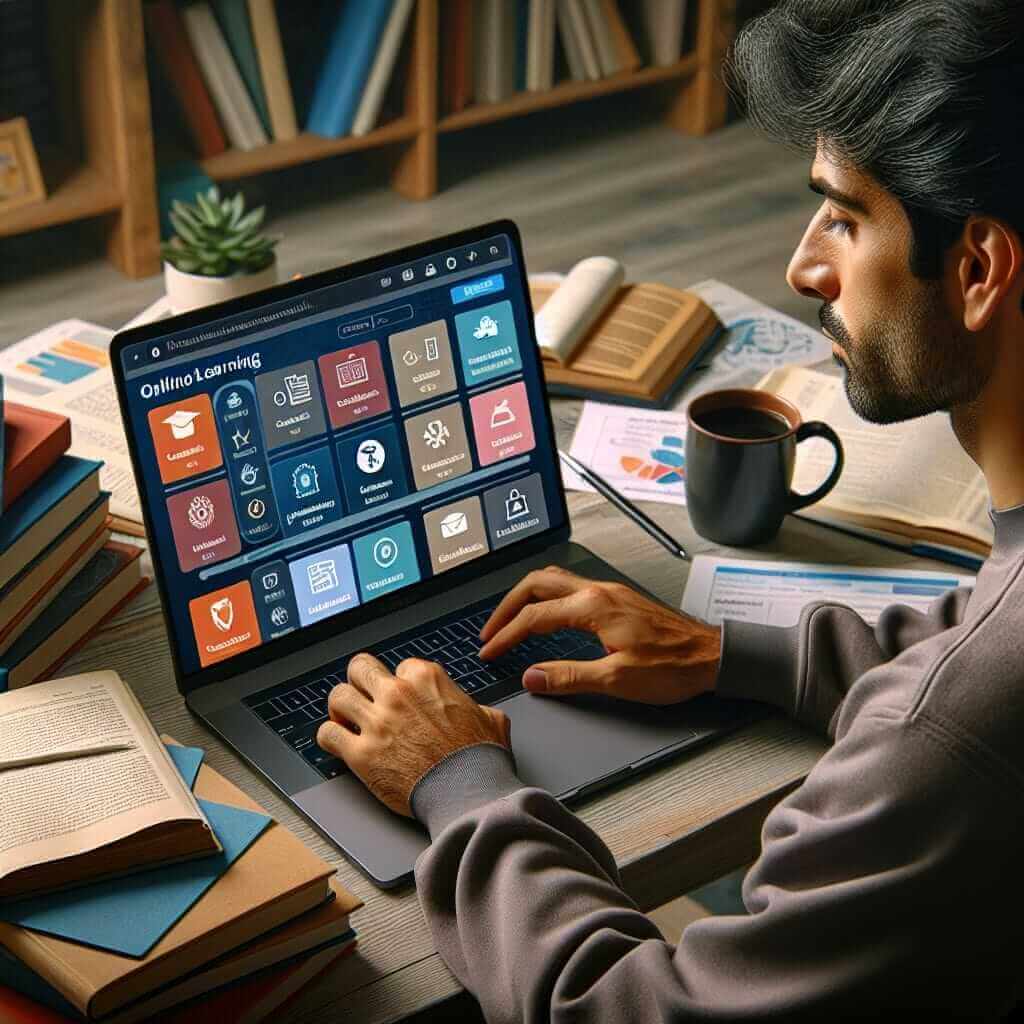The IELTS Reading section is a challenging part of the IELTS test, requiring candidates to understand and interpret detailed information quickly and accurately. Given the increasing relevance of technology in our lives, the topic “Role of Technology in Modern Education” is not only timely but also a common subject in IELTS exams. In this practice test, we will explore through a passage, questions, and detailed answers, how technology impacts contemporary education. This content will help you sharpen your reading skills, and possibly encounter similar themes in your actual IELTS test.
The Role of Technology in Modern Education
Passage
(For the purpose of this exercise, this passage will be of medium difficulty)
Technological advancements have fundamentally transformed every aspect of our lives, and education is no exception. The integration of technology into educational practices has evolved significantly, providing new methods of learning and teaching, thus enhancing the educational experience.
One of the profound ways technology has impacted education is through the introduction of e-learning platforms. These platforms provide a wealth of information readily accessible to students, enabling them to pursue knowledge beyond the traditional classroom setting. Learners can attend courses offered by prestigious institutions across the globe, receive education from highly qualified instructors, and even engage in interactive learning experiences, all from the comfort of their homes.

In addition to e-learning platforms, the advent of educational software and apps has also contributed significantly to individualized learning. These tools cater to different learning styles and paces, thus facilitating personalized education. For instance, many language learning apps use artificial intelligence to adapt to the user’s proficiency level, offering tailored exercises and feedback to ensure effective learning.
Moreover, technology facilitates better engagement and collaboration among students. Virtual classrooms and online discussion forums allow students to collaborate on projects and share ideas, fostering a collaborative learning environment. This interaction is crucial in developing critical thinking and problem-solving skills, which are essential in the modern workplace.
While technology undoubtedly offers numerous benefits, it also presents certain challenges. There is a growing concern about the digital divide, where students in underprivileged regions may not have access to the same technological resources as their peers in more developed areas. This disparity can exacerbate existing educational inequalities.
In conclusion, while technology revolutionizes education by making learning more accessible, personalized, and engaging, it is essential to address the accompanying challenges to ensure that all students can benefit equally from these advancements.
Questions
Multiple Choice
-
What is mentioned as one significant benefit of e-learning platforms?
A. Enhanced face-to-face interaction
B. Access to a wealth of information
C. Reduced educational costs
D. Physical classroom attendance -
How do language learning apps tailor their services to users?
A. Providing generic exercises
B. Using artificial intelligence
C. Enforcing strict schedules
D. Offering classroom-based lessons
Identifying Information (True/False/Not Given)
- The passage states that e-learning platforms are more effective than physical classrooms.
- Educational software helps cater to different learning styles and paces.
- There is no mention of concerns related to the digital divide affecting education.
Matching Information
-
Match the following impacts of technology on education with the correct detail from the passage:
A. Individualized learning
B. Increased engagement and collaboration
C. Challenges of digital accessi. Virtual classrooms and online forums
ii. AI-based language learning apps
iii. Students in underprivileged regions lacking access
Answers
Answer Key
-
B. Access to a wealth of information
The passage explicitly states that e-learning platforms provide a wealth of information readily accessible to students. -
B. Using artificial intelligence
The passage mentions that many language learning apps use artificial intelligence to adapt to the user’s proficiency level. -
False
The passage does not state that e-learning platforms are more effective than physical classrooms. It only mentions that they provide additional benefits. -
True
The passage states that educational software and apps cater to different learning styles and paces. -
False
The passage does mention concerns related to the digital divide, stating there is a growing concern about students in underprivileged regions not having access to technological resources. -
Matching:
- A. ii. AI-based language learning apps
- B. i. Virtual classrooms and online forums
- C. iii. Students in underprivileged regions lacking access
Lessons
- Common Mistakes: Misinterpreting the passage or reading too quickly can lead to incorrect answers. Always read questions carefully and refer back to the passage.
- Vocabulary Building: Pay attention to technological terms and their usage in context to improve comprehension and language proficiency.
- Critical Reading: Develop the skill to identify the main ideas and supporting details, which is crucial for both understanding the passage and answering the questions correctly.
Vocabulary
- Integration (n.) / ɪnˌtɛɡrəˈteɪʃən /: The act of combining or adding parts to make a unified whole.
- E-learning (n.) / ˈiːˌlɜːrnɪŋ /: Learning conducted via electronic media, typically on the Internet.
- Artificial Intelligence (n.) / ˌɑːrtɪˈfɪʃ(ə)l ɪnˈtɛlɪdʒəns /: The simulation of human intelligence by machines.
Grammar
- Relative Clauses: Used to give additional information about something without starting a new sentence. Example from the passage: “These tools, which cater to different learning styles and paces, facilitate personalized education.”
Advice
- Regular Practice: Regular reading practice, especially with complex and diverse texts, can significantly enhance your reading skills.
- Time Management: During the test, manage your time effectively to ensure you have enough time to read the passage and answer all questions carefully.
- Annotate: While reading, make small annotations to help you recall important points.